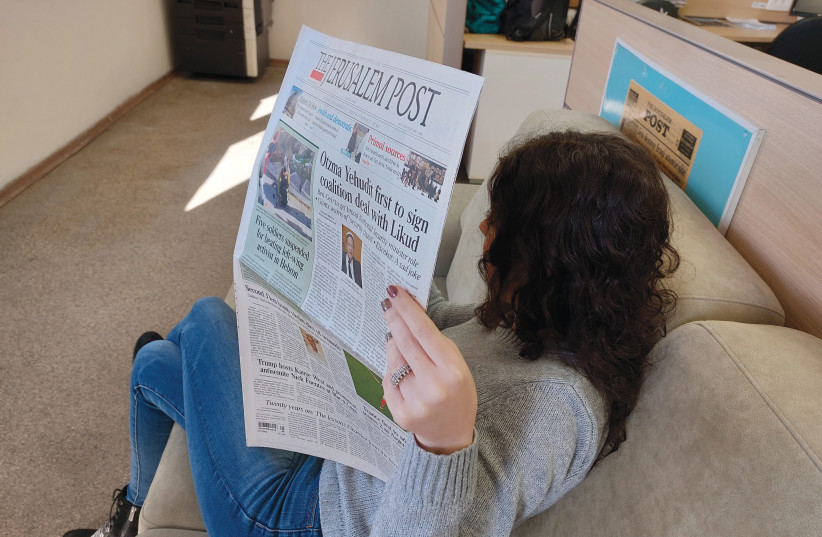Boaz Bismuth, a former journalist and now Likud MK, announced this week that he had presented legislation to bar journalists from publishing recordings of people without receiving their prior consent.
“In the technological era we live in, anyone can record a conversation with sensitive content and publish it,” Bismuth tweeted. “The bill will ensure that publishing such a recording will be considered a severe violation of privacy.”
“In the technological era we live in, anyone can record a conversation with sensitive content and publish it. The bill will ensure that publishing such a recording will be considered a severe violation of privacy.”
Boaz Bismuth
As a veteran journalist who served until last year as editor-in-chief of the newspaper Israel Hayom, Bismuth should know better. Journalists cannot do their jobs properly without recording interviews, particularly of people they suspect of wrongdoing.
What is Boaz Bismuth's bill that would harm the work of Israeli journalists?
Bismuth’s bill, which he presented two weeks ago and publicized on Sunday, is an amendment to Israel’s privacy law, which would add to the list of actions defined as violations of privacy the publication of a recording of a person without their consent that includes “sensitive information” about the individual. “Sensitive information” is defined by the law as information about a person’s personality, health condition, financial condition, opinions and beliefs. The amendment would make publishing recordings without consent a crime carrying a punishment of up to five years in jail.
Explaining the rationale behind it, Bismuth said the current law is problematic because “the technological ability to record conversations should be primarily used to preserve information for private purposes, not to publish them in a manner that could violate an individual’s privacy.” While this sounds good and may make sense to an Israeli public wary of violations of their privacy, recordings are a basic tool of the trade of journalism and often serve as the basis of exposés on wrongdoing by criminals, politicians and sexual offenders.

Under Bismuth’s proposal, a journalist would have to ask for permission before recording an alleged rapist or pedophile. How does this make sense?
This is why Bismuth’s bill triggered sharp criticism from his former colleagues in the press who are concerned that their work will be severely curtailed.
The Union of Journalists in Israel squarely rejected the bill, saying it restricts journalistic freedom. “Part of our job is to publish recordings that often reveal what certain parties would rather stay hidden — from shady, corrupt deals to crimes committed against the weak: children, the elderly and other marginalized groups,” it said. “Handing the recorded person the right to approve or reject a recording is a prize for corrupt people and con men. It is shocking and unbelievable that this is the first law bill filed by someone who for many years was a senior journalist and the editor-in-chief of a high-circulation newspaper.”
Haim Etgar, who hosts a popular TV show exposing fraudsters, said the bill would prevent him from doing his work.
“Mr. Bismuth has to give an explanation to the poor elderly woman whose air conditioner technician came to her home and swindled her out of a high sum just because she doesn’t understand, which was exposed only because we are still permitted to do our job,” Channel 13 reporter Yossi Eli tweeted. “Mr. Bismuth should look in the eyes of parents who come to confront the kindergarten teacher of their children who is suspected of abusing toddlers. A shameful bill.”
Bismuth had a stellar career in journalism before announcing his entry into politics last July, working for Israel’s three largest Hebrew newspapers – Maariv, Yediot Aharonot and Israel Hayom – as well as serving as a broadcaster for Army Radio and a commentator for Channel 12 News.
It would be a pity to kick off his political career with a bill that inhibits journalism. We understand that he is close to the Netanyahus, which makes the legislation even more problematic. Two of the cases against Prime Minister Benjamin Netanyahu in his ongoing corruption trial involve alleged deals to make news coverage more favorable toward him.
Five years ago, N12 aired a recording of the prime minister’s son, Yair, and his friends during a night of excess in Tel Aviv. At the time, the Netanyahu family charged that the recordings were part of a “witch hunt” against the prime minister. One cannot help but wonder if the Bismuth bill is the prime minister’s delayed response.
We urge Bismuth – for the sake of his former profession and those who practice it diligently and ethically – to withdraw the bill immediately.
